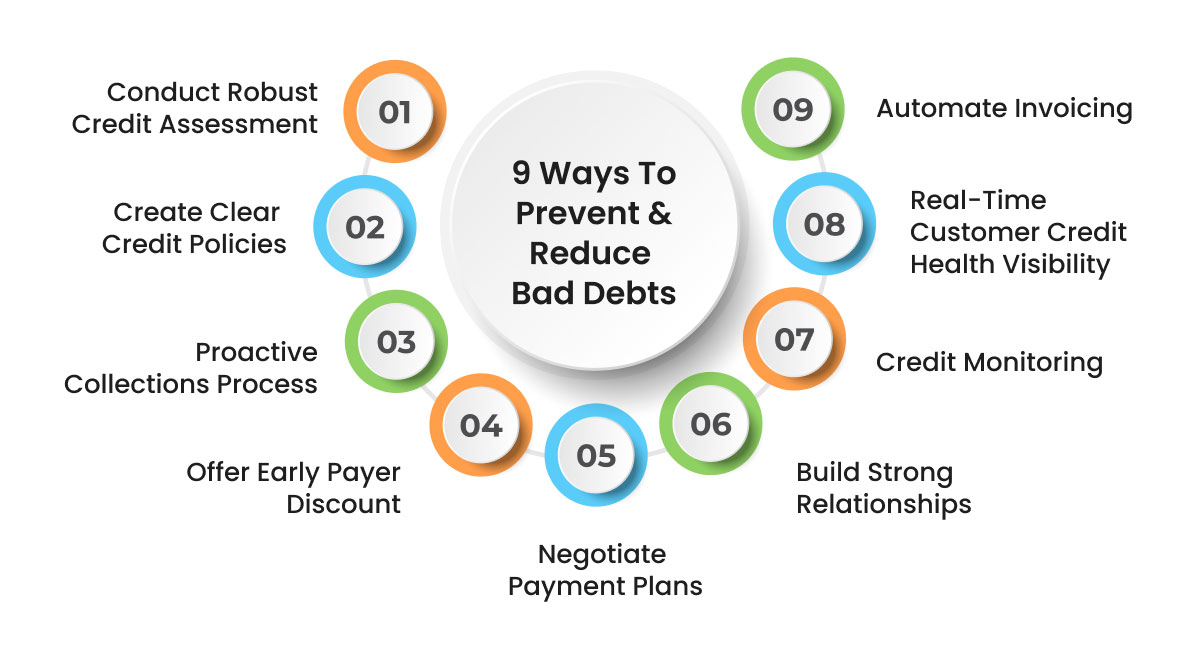Unpaid debt can create significant stress and financial strain, whether for individuals or businesses. The good news is that there are proactive steps you can take to minimize the risk of falling into debt and ensure that you stay on top of your financial obligations. Many people might not realize that by implementing certain tools and strategies, you can effectively prevent unpaid debt from becoming a problem. Let’s explore some practical methods to help you avoid this financial pitfall, including the use of automation, reminders, and proactive communication.
Understanding the Importance of Prevention
Before diving into the strategies, it’s essential to understand why preventing unpaid debt is crucial.
- Maintaining Cash Flow: For businesses, unpaid invoices can disrupt cash flow, making it difficult to meet operational expenses. By preventing unpaid debts, you can maintain a steady cash flow, which is vital for long-term success.
- Reducing Financial Stress: On a personal level, unpaid debts can lead to anxiety and stress. By taking steps to manage your finances proactively, you can enjoy peace of mind knowing you’re in control of your financial situation.
- Debt Resolution: If unpaid debts do arise, it can become necessary to explore debt resolution options. However, prevention is always more manageable than trying to resolve issues after they occur.
Implementing Automated Invoicing Systems
One effective way to prevent unpaid debt is by using automated invoicing systems. Here’s how they can help:
- Timely Invoicing: Automated systems can generate and send invoices promptly, ensuring that clients receive their bills on time. This reduces delays that can occur when relying on manual invoicing.
- Consistent Follow-Ups: Many automated systems offer features that allow you to set reminders for follow-ups. If a client hasn’t paid, the system can automatically send gentle reminders, helping to keep the payment on their radar.
- Easy Tracking: With automated invoicing, you can easily track which invoices have been paid and which are still outstanding. This visibility makes it easier to manage your accounts receivable and follow up accordingly.
Setting Up Payment Reminders
Setting up payment reminders is another proactive strategy that can help prevent unpaid debts. Here’s how to do it effectively:
- Automated Reminders: Many invoicing systems allow you to set up automated payment reminders for your clients. These reminders can be sent a few days before the payment is due and again on the due date.
- Personal Touch: While automation is useful, don’t underestimate the power of a personal touch. A friendly email or message can sometimes be all it takes to prompt a payment.
- Clear Communication: When you send out reminders, ensure that your communication is clear and professional. Include details such as the invoice amount, due date, and payment options. This clarity can help prevent misunderstandings that lead to late payments.
Utilizing Electronic Documentation
In today’s digital age, using electronic documentation can play a significant role in preventing unpaid debt. Here’s how it can help:
- Easier Record Keeping: Digital documentation allows for easier tracking of agreements, invoices, and payment histories. This can be crucial if a dispute arises over a payment.
- Quick Access to Information: Having all documentation in one place means that you can quickly access necessary information when needed. This can save time and help you respond to inquiries promptly.
- Reduced Risk of Errors: Digital systems reduce the likelihood of errors that can occur with paper documentation. By minimizing mistakes, you can help ensure that all parties understand their obligations clearly.
Leveraging AI-Enabled Tools
The rise of AI technology offers fantastic opportunities for businesses and individuals to manage their finances more effectively. Here’s how AI-enabled tools can help prevent unpaid debt:
- Predictive Analytics: AI tools can analyze past payment behavior to forecast future payment patterns. By understanding which clients are more likely to pay late, you can take proactive steps to address potential issues before they arise.
- Automated Follow-Ups: AI can automate follow-ups based on predicted payment behaviors. For example, if a client has a history of late payments, the system can trigger reminders to be sent earlier than usual.
- Streamlining Processes: By automating various aspects of your invoicing and accounts receivable processes, AI can free up time and resources. This allows you to focus on your core business activities instead of chasing down payments.
Building Strong Client Relationships
Another key factor in preventing unpaid debt is building strong relationships with your clients. Here’s how to foster those connections:
- Open Communication: Encourage your clients to communicate openly about any issues they may have with payments. Establishing a rapport can make it easier for them to reach out if they’re facing challenges.
- Be Flexible: If a client is struggling, consider offering flexible payment options. This could include extended payment terms or payment plans that suit their situation better.
- Show Appreciation: A little appreciation can go a long way. Sending a thank-you note or offering discounts for early payments can strengthen your relationship and encourage timely payments in the future.
Educating Yourself and Your Team
Finally, staying informed and educating yourself and your team about financial management practices is crucial in preventing unpaid debt:
- Attend Workshops: Look for workshops or seminars focused on financial management and debt prevention. These can provide valuable insights and strategies to help you improve your processes.
- Share Knowledge: If you’re part of a team, encourage sharing knowledge and best practices for managing finances. Collaboration can lead to new ideas and solutions that benefit everyone involved.
- Regular Reviews: Schedule regular reviews of your financial practices and accounts receivable processes. This can help you identify areas for improvement and ensure that you’re on track to prevent unpaid debt.
Conclusion
Preventing unpaid debt doesn’t have to be a daunting task. By implementing proactive strategies such as automated invoicing systems, payment reminders, and electronic documentation, you can take control of your finances and minimize the risk of overdue payments. Embracing AI-enabled tools and fostering strong client relationships further enhances your ability to manage debts effectively. Remember, knowledge is power—so take the time to educate yourself and your team, and don’t hesitate to explore debt resolution programs if needed. With these steps, you can pave the way for a more secure financial future!
Keep an eye for more news & updates on TimesAnalysis!



